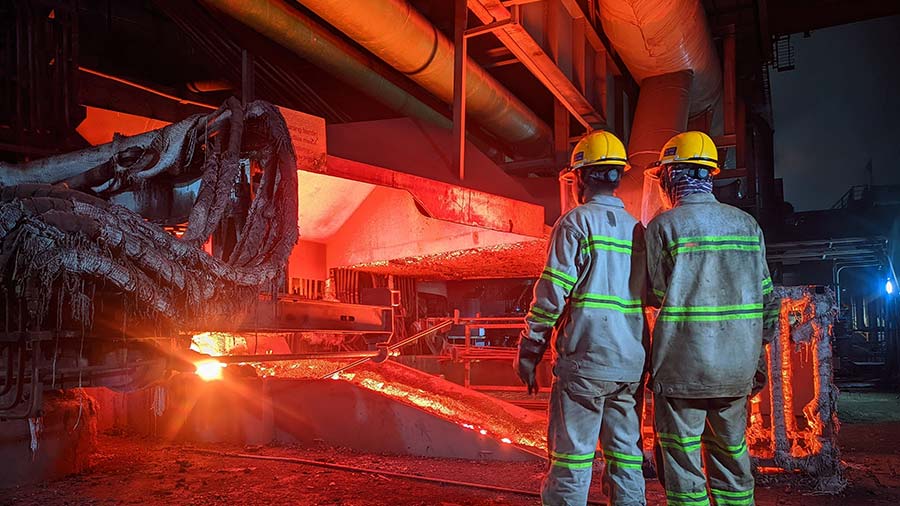What is a Halal Certification?
Halal certification is a formal acknowledgement that a product meets the stringent dietary standards as prescribed by Islamic law. This certification is crucial for products that require assurance for consumption and use by Muslim consumers, ensuring the ingredients, production process, and handling meet the required halal standards.
Importance and benefits of Halal Certification
Halal certification provides a multitude of benefits, influencing not only market dynamics but also consumer trust and business credibility. In Indonesia, where the majority of the population adheres to Islam, the certification is not only a label but also a significant economic and social influencer.
For consumers
- Halal certification offers consumers assurance that the products they purchase are in strict compliance with Islamic dietary laws, undergoing rigorous checks and balances during production.
- Knowing a product is certified halal alleviates concerns for Muslim consumers about inadvertently consuming non-halal items, thus respecting their religious and personal dietary preferences.
- For many practicing Muslims, consuming halal products is not just a personal preference but a spiritual obligation. Halal certification helps them fulfill this aspect of their faith more seamlessly.
For businesses
- Halal certification opens doors to both national and international markets, particularly in regions with significant Muslim populations. For Indonesian businesses, this means an opportunity to expand beyond local markets and tap into global halal demand.
- Businesses that obtain halal certification can boost their brand's trustworthiness and appeal to a broader demographic. This is particularly crucial in competitive industries where establishing consumer trust can significantly impact business success.
- Possessing a halal certificate provides a competitive edge, positioning a product as preferable over others in a crowded market, and can be a key differentiator for brands.
Principles of Halal Certification
Halal certification is governed by a set of core principles that ensure products are permissible under Islamic law.
These principles are not merely about abstaining from haram (forbidden) ingredients but encompassing the entire lifecycle of a product—from sourcing materials to processing and packaging. The primary goal is to maintain a strict separation from anything considered impure or harmful according to Islamic teachings.
To begin with, halal certification requires that products must not contain, or come into contact with, any pork products, alcohol, or any other ingredients derived from animals not slaughtered according to Islamic rites. This comprehensive scrutiny extends to all facets of production, ensuring that there is no cross-contamination even at the level of processing equipment and facilities.
Ingredients and processes considered in Halal Certification
Ingredient compliance
The first layer of halal certification involves the thorough examination of all ingredients used in a product. Ingredients must be free from any haram substances, and this includes additives, enzymes, and flavorings which must all be vetted for their source and method of production.
Slaughtering practices
For meat products, the slaughtering process is a critical aspect of halal certification. The animals must be healthy at the time of slaughter and must be killed in a manner that includes a swift incision to the throat while reciting a prayer. The process is designed to ensure minimal suffering to the animal and is strictly monitored by certifying bodies.
Production processes
Every aspect of the production process is scrutinized under halal certification standards. This includes examining how the food is prepared, processed, and handled. Facilities must be free of any non-halal items and must not use the same production lines or equipment for halal and non-halal products unless thorough sanitization processes are followed.
Packaging and labeling
Ensuring that packaging materials are also free from haram substances is crucial. Furthermore, clear labeling is required to help consumers easily identify halal-certified products. This transparency is essential not only for compliance but also for consumer trust.
Cross-contamination measures
Companies must implement stringent measures to prevent cross-contamination between halal and non-halal products. This can involve dedicated production lines or comprehensive cleaning protocols to ensure that halal products maintain their integrity throughout the manufacturing process.
The comprehensive nature of these standards is what makes halal certification a rigorous and respected system globally. For companies in Indonesia, adhering to these standards is not just about accessing a lucrative market but also about respecting and upholding the dietary laws that govern a significant portion of the population.
Legal and regulatory framework
Governing bodies
The primary authority responsible for overseeing the Halal certification process is the Halal Product Assurance Agency (LPPOM MUI). LPPOM MUI ensures that all products and services meet the strict halal standards required by Indonesian law. Once a business applies for certification, the LPPOM MUI delegates the inspection and testing of the products or services to a designated Halal Inspection Agency. This structure ensures that the certification process is thorough and standardized, maintaining high compliance with religious dietary laws.
Legal Requirements
The legal framework for Halal certification in Indonesia is outlined in Government Regulation 39 of 2021 (GR 39/2021). According to this regulation, all products that are imported, distributed, or sold in Indonesia must be Halal certified, unless they are non-halal products (non-halal products shall be accompanied by the information that they are non-halal). This applies broadly across many sectors, including food, cosmetics, pharmaceuticals, and tourism, reflecting Indonesia's status as the world's largest Halal market. The regulation highlights Indonesia’s commitment to ensuring that products comply with Islamic laws, catering to its majority Muslim population.
Under GR 39/2021, the process for obtaining Halal certification requires businesses to use only halal-approved materials and adhere to halal production processes. This includes specific requirements for storage, packaging, display, and sale to prevent any possibility of contamination with non-halal substances.
Penalties for non-compliance
To reinforce the importance of halal certification, GR 39/2021 specifies strict penalties for non-compliance. Businesses that fail to secure the necessary Halal certification for products that require it can face significant fines and restrictions on their operations. These penalties are intended to ensure adherence to halal standards and to protect consumers who rely on the halal designation to make informed choices in accordance with their religious and personal values.
Moreover, GR 39/2021 not only updates the existing regulations by providing clearer guidelines for compliance but also revokes the previous Government Regulation 31/2019 on Halal certification.
Which products and services must be Halal certified?
According to GR 39/2021, the following goods and services must be Halal-certified:
Goods
- Food and beverages;
- Pharmaceuticals;
- Cosmetics;
- Chemical products;
- Genetically modified products;
- Biological products; and
- Other goods people use or utilize.
Services
- Processing;
- Storage;
- Packaging;
- Distribution;
- Animal slaughter;
- Sales; and,
- Serving.
Halal certification process
Initial assessment and application
- Begin the journey to Halal certification by implementing the Halal Assurance System (HAS) according to HAS 23000 standards.
- Ensure business processes align with HAS 23000, structured around key themes for maintaining halal integrity throughout production.
- Access resources such as thematic HAS 23000 books (available in print and electronic formats) and participate in HAS training offered by qualified institutions.
- Start the formal application process by applying for the Registration Receipt (STTD) to the Halal Product Assurance Agency (BPJPH).
- Retrieve necessary information and documents for the STTD application from the official BPJPH website.
- Select LPPOM MUI, for conducting product inspections.
- Register for product inspection through the CEROL online system, which involves entering detailed facility and product information and uploading required documents.
Documentation and record-keeping
Effective documentation and record-keeping are pivotal in the halal certification process. Required documentation includes:
- Previous Halal Decree for existing product groups during development or renewal.
- HAS/SJPH Manual required for new, developing with HAS B status, or renewing registrations.
- Most recent HAS Status/Certificate for ongoing development or renewal.
- Production process flow chart for each type of halal-certified product.
- A statement confirming exclusive use of production facilities for halal products unless non-halal production areas have undergone stringent cleaning protocols.
- Addresses of all production-related facilities, including details for toll manufacturers and storage sites; additional supplier details required for non-halal certified raw materials in gelatin production.
- Documentation demonstrating the dissemination of halal policies.
- Credentials showing the expertise of the halal management team, including certificates and training records; additional proof needed for training at newly developed facilities.
- Proof of internal HAS audit completion.
- Official company licenses, including Business Identification Number and various business permits relevant to operational location.
- Certifications or proofs of adherence to quality or safety systems like HACCP, GMP, or FSSC 22000.
- BPJPH-issued Registration Receipt (STTD) for the certification process.
There is several additional information for abattoirs/slaughterhouses need to provide such as:
- Name of slaughtermen involved.
- Slaughtering method: manual or mechanical.
- Stunning method: none, mechanical, or electrical.
Facility inspection and compliance audit
Once the initial documentation is reviewed and approved, the next step involves a thorough facility inspection and compliance audit conducted by LPPOM MUI. This audit assesses all aspects of the production process to ensure they meet halal standards. Inspections cover the cleanliness of the facility, the integrity of the production process, and the compliance of storage and packaging practices with halal requirements.
Product testing and analysis
The product testing and analysis phase involves detailed laboratory testing of product samples to ensure they adhere to the strict guidelines set forth by Islamic law. It is during this stage that any potential contamination or non-compliance issues are most likely to be identified.
Certification decision and issuance of Halal Certificate
Following successful inspections and testing, the results are reviewed by the Majelis Ulama Indonesia (MUI) through its Fatwa Commission. The MUI determines the halal status based on the audit outcomes and issues the MUI Halal Decree if the products meet all the necessary criteria. Upon approval, the Halal certificate is issued, signifying that the company’s products are compliant with Islamic dietary laws.
The issuance of a Halal certificate is a significant achievement for any business looking to cater to the Muslim market, both in Indonesia and globally. Maintaining this certification requires ongoing adherence to halal standards, regular inspections, and renewal processes to ensure continuous compliance.
Maintaining and renewing Halal Certification
Ongoing compliance requirements
Businesses must ensure that all aspects of their production—from ingredient sourcing to the manufacturing processes—consistently adhere to halal standards. This requires diligent monitoring of supply chains to guarantee that no non-halal materials enter the production environment.
Companies must keep their vigilance of any updates in halal regulations to ensure ongoing compliance, as the standards can evolve based on new dietary laws or technological advancements in food production.
Regular inspection and surveillance
To uphold the integrity of halal certification, inspections are needed to verify that businesses maintain the required halal standards in their operations. The frequency of these inspections can vary depending on the type of product or service, the size of the company, and the previous compliance history of the business.
Renewal process
The validity period of halal certificates has been significantly revised under the new regulations:
Under GR 39/2021:
- Halal certificates issued by BPJPH (Indonesia Halal Product Assurance Organizing Body) were valid for 4 years
- Certificate renewal will require an application to be submitted at least 3 months before expiration
Under GR 42/2024:
- Halal certificates now have permanent validity, eliminating the need for periodic renewal
- This permanent status remains valid as long as:
- No changes are made to the material composition
- No alterations occur in the halal product process (PPH)
However, businesses must update their halal certification if they:
- Modify material composition;
- Change their halal product process; and/or,
- Develop new products In such cases, they must submit a new application to BPJPH along with documentation supporting these changes.
The Halal certification compliance period
The government has taken into consideration the time businesses need to prepare their operations to be Halal compliant. Therefore, the government has set stages for Halal certification based on product type.
Under the original Government Regulation (GR) 39/2021, Indonesia mandated universal halal certification for all food and beverage products, ingredients, and slaughter-related services, with a single deadline of October 17, 2024, regardless of business size. However, this has been superseded by GR 42/2024, which introduces a more nuanced timeline structure.
|
Business Scales/ Categories |
Deadline |
|
Medium and Large Enterprises |
17 October 2024 |
|
Micro and Small Enterprises |
17 October 2026 |
|
Foreign Products/ Services |
To be determined by the Minister of Religious Affairs before 17 October 2026, depending on the finalization of mutual recognition agreements for halal certification |
For non-food and beverage products subject to halal certification, the deadlines remain as set in GR 39/2021:
|
Business Scales/ Categories |
Halal Certification Period |
|
Health supplements and traditional medicine |
17 October 2021 – 17 October 2026 |
|
Over-the-counter medicine |
17 October 2021 – 17 October 2029 |
|
Drugs excluding psychotropics |
17 October 2021 – 17 October 2034 |
|
Cosmetics, generally modified products, chemical products |
17 October 2021 – 17 October 2026 |
|
Clothing, headgear |
17 October 2021 – 17 October 2026 |
|
Household health supplies, office supplies, household appliances |
17 October 2021 – 17 October 2026 |
|
Medical devices classified as risk class A |
17 October 2021 – 17 October 2026 |
|
Medical devices classified as risk class B |
17 October 2021 – 17 October 2029 |
|
Medical devices classified as risk class C |
17 October 2021 – 17 October 2034 |
Foreign Halal Certification
New foreign product certification requirements under GR 42/2024, where the foreign products requiring Indonesian halal certification must apply through either:
- An Indonesia-based importer
- An authorized representative located in Indonesia
Certification is required when:
- The product's country of origin lacks a halal certification institution
- The foreign halal institution has a mutual recognition agreement but cannot certify the specific product
- There is no cooperation or mutual recognition agreement between the foreign halal institution and BPJPH
- The business voluntarily seeks Indonesian certification
Products may skip full certification if:
- They already hold halal certification from their country of origin
- The certifying institution has a mutual recognition agreement with BPJPH
Registration requirements:
- All foreign halal-certified products must still be registered before distribution in Indonesia
- The registration process remains as outlined in GR 39/2021
- Registration validity matches the foreign halal certificate's duration
- Key change: Registration renewal applications must be submitted 60 days before expiration (reduced from the previous 90-day requirement under GR 39/2021)
New business obligations under GR 42/2024
Government Regulation 42/2024 expands upon the existing requirements of GR 39/2021, introducing new obligations for businesses holding halal certification. Under the revised regulation, certified businesses must:
- Affixing a halal label to products that have been certified halal;
- Maintaining the halal integrity of products that have received halal certification;
- Separating locations, facilities, and tools used for slaughter, processing, storage, packaging, distribution, sale, and presentation between halal and non-halal products;
- Renewing the Halal Certificate if there is a change in ingredient composition and/or the PPH; and
- Reporting any changes in material composition and/or PPH to BPJPH.
Non-compliance with these requirements may trigger administrative penalties, including:
- Written warnings
- Financial penalties
- Halal certificate revocation
- Mandatory product withdrawal from distribution
Choosing the right Halal Certification partner
Selecting a Halal certification partner is a crucial decision for businesses aiming to ensure their products meet Halal standards, particularly in a market as significant as Indonesia, which boasts the largest Muslim population globally. When choosing a certification partner, it’s important to consider several key aspects:
- Opt for a partner with deep expertise in Halal Certification, accumulated through years of experience and a deep understanding of the religious, cultural, and regulatory framework that influence Halal compliance.
- Ensure that the partner is recognized by major Halal authorities both in Indonesia and internationally, as this broad acceptance is important for businesses looking to expand into global Muslim markets.
- Look for transparency in their process and a strong ethical framework, which are essential for maintaining trust and credibility.
- The partner should have a proven track record of keeping up with both local and international regulatory standards, ensuring that your products consistently meet the required guidelines.






















